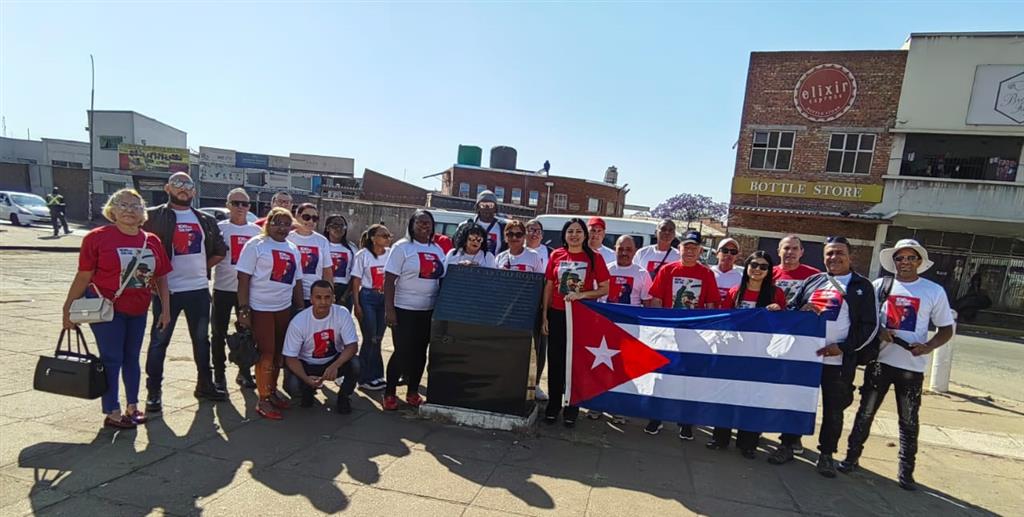
Harare, Oct 6. -The Cuban Ambassador to Zimbabwe, Susellys Pérez Mesa, today denounced the intensification of the United States blockade and predicted a new victory in the upcoming vote on the resolution calling for an end to the siege of the island, on October 29.
In an exclusive interview with the Diplomatic Couch television program, the head of the Mission stated that Cuba and Zimbabwe are facing the application of unilateral coercive measures, rejected, once again, by their Foreign Ministers at the recent High-Level Segment of the 80th Session of the United Nations General Assembly.
It is important to note that 43 countries called for an end to the blockade in this context and, on 19 occasions, rejected Cuba's inclusion on the spurious, arbitrary, and illegitimate list of state sponsors of terrorism, the Ambassador emphasized.
She also expressed her gratitude for Zimbabwe's support for the just struggle against Washington's hostile policy, which is almost unanimously shared by the international community, with the backing of 187 countries last year.
For more than 60 years, she added, the Cuban people have been victims of this extraterritorial policy, which violates international law and constitutes the main obstacle to the country's economic and social development.
In her statements to the Diplomatic Couch, the Ambassador praised the condemnation of the blockade in February, during the session of the Assembly of Heads of State and Government of the African Union, as a sign of the region's support.
During the interview, the diplomat referred to bilateral relations with Zimbabwe, established 45 years ago, two days after the African nation's independence, and especially to collaboration in key areas such as public health and education.
In this regard, she recalled that Cuban medical brigades have been in Zimbabwe since 1986 and, for example, the XIV Brigade currently works in hospitals in Harare and Bulawayo, providing more than 61,000 consultations and over 2,000 surgeries, in addition to holding health fairs in hard-to-reach communities.
The Ambassador also referred to the history of the island's medical cooperation, which began in Algeria in 1963, with the participation of some 605,000 professionals in 165 countries, with 2.2 billion consultations and over 15 million surgeries, saving the lives of more than nine million people.
Other topics discussed in the interview included potential areas of cooperation and ongoing projects to expand the excellent bilateral relations cemented by leaders Fidel Castro and Robert Mugabe. (Text and photo: PL)